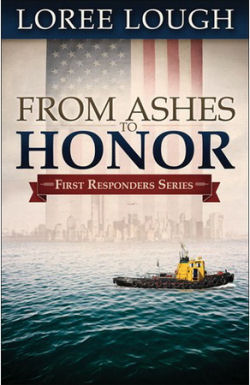|
Lately,
I’ve received more e-mails than usual about the how-to-get-published
advice known worldwide as “Write what you know.”
For example:
Hey, Loree: You have a
long list of published books, and they’re all over the map: historical,
contemporary, kids stuff. Help me understand how you followed the
“write what you know” principle, because, frankly, I don’t see it.
(Emory S., Joliet, IL)
Dear Ms. Lough: As a
fan of yours who is trying to break into print, I’m hoping you can
elaborate on the “write what you know” rule. How did you incorporate
the rule into your work? (Florence B., Salisbury, MD)
Loree—I read recently
that Hemingway coined the phrase “write what you know.” Can you share
with me your insights on how that works? Thanks! (Barbara Kay T., Santa
Rosa, CA)
I can answer every writer with
one word: DON’T.
That’s right. I said don’t
write what you know. Take a minute to recover.
That sounds crazy and way-out,
given that we all cut our authors’ teeth on the maxim. But the truth is
if you write only about what you know from personal experience, you’re
limiting yourself—not only in story but in ways you
can touch readers, too.
Trust me, if I wrote about the
life I’ve lived, you’d be yawning by page two—if not before. It’s true
that not everyone you’ll meet paid her way through college crooning
oldies but goodies in hotel lounges, but the stuff I know
about touring the country and entertaining audiences is, in a word,
boring. (Be honest, do you really want to read about how many pairs of
shoes I stuffed into the steamer-trunk-on-wheels that rolled everywhere
with me, or the number of guitar strings that sproinged
between 9 and 2 a.m.? I didn’t think so.)
Now, if I devise stories
highlighting the waitresses and salesmen and tourists who sang off-key
harmony to those oldies but goodies, I have a far better chance at
capturing—and holding—your attention—provided I
don’t go all Dean Koontz and tuck my personal viewpoints and politics
into the plotlines.
It’s a fine line we walk,
crafting fiction that highlights elements and happenings that hit
readers right where they live, while taking them on flights of fancy.
Too much “real life” and they’ll tell their pals, “Save your money and
buy the newspaper, instead!” Not enough, and they’ll have nothing—and
no one—to identify with. And I think if Hemingway were here, he’d
agree, unless I’ve misinterpreted his own words: “From all things that
you know and all those you cannot know,” he once said, “you make
something through your invention that is not a representation but a
whole new thing truer than anything true and alive.”
This is what I
say to Emory (et al) regarding the whole “write what you know” issue:
Start
by asking yourself why you’re writing that novel.
If it’s to share your personal beliefs and opinions with readers, well,
stop.
|
That’s
what autobiographies are for. If it’s to show off every
bit of information gleaned in college and grad school, add that to your
blog instead of your novel. Because who wants to fork over hard-earned
money—especially with the economy the way it is these days—for a
lecture disguised as fiction?
Will you be required to add new
facts to what you already know about your setting, time period, medical
and scientific advancements that pertain to the storyline? Well, sure!
Will it be necessary to interview experts who are working at your
characters’ jobs so you can develop realistic characters? You betcha!
But the after-effects of research is writing what you know about more
than writing what you know.
Semantics? I think not. Not
every writer can pen hits like The Diary of Anne Frank
or the biography of Thomas Cahill. “But those books aren’t fiction!”
you say. And I say, “My point, exactly.”
During my decades of teaching
the how-to of this crazy craft, I’ve read hundreds of student
manuscripts. Those who cling tight to the “write what you know” rule
invariably produce slow-paced plots peopled by flat characters who
never come alive on the pages. They’re also the ones who defend their
work with comments like “But it really did happen just that way!” and
“I lived it, so I know it’s true!”
Conversely, students who step
out in faith, who exercise confidence in their ideas, their plots, in
characters who remind readers of the guy next door or their blustery
Uncle Joe? I’m often so engaged in their stories that I forget my
promise to edit the work!
Write what you know...
...or write what you know about?
I guess the answer to that one
will determine what readers will think about our
work.


|








